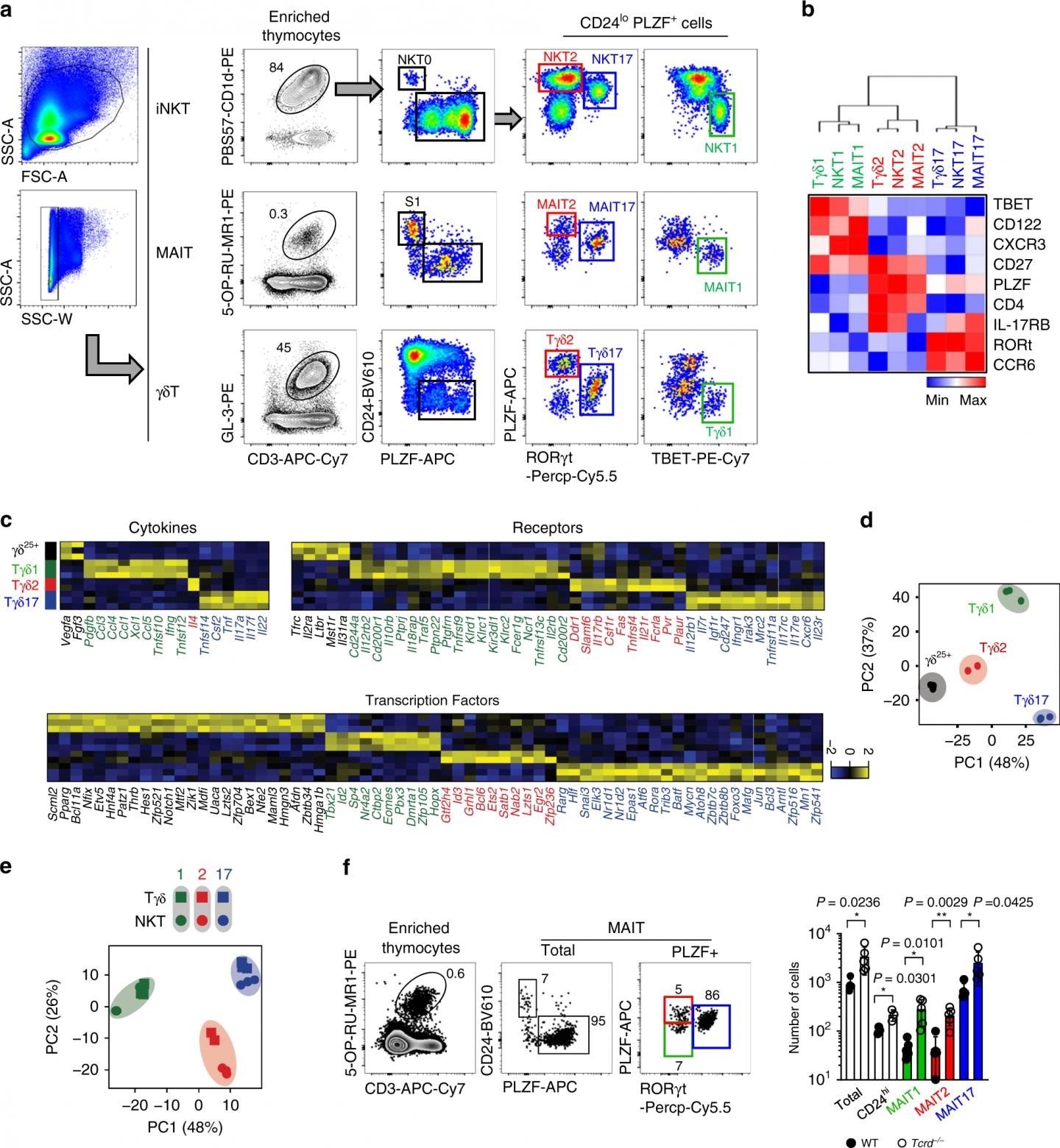Memory cells essentially recall formerly encountered pathogens and help respond strongly and rapidly when they are exposed to this foreign matter again.

Innate T cells have analogous effector subsets. Image Credit: You Jeong Lee, Sanguk Kim (Pohang University of Science and Technology).
Scientists have now discovered the developmental process of powerful immune cells that produce these memory cells beforehand without having to encounter infectious agents.
Interpretation of the developmental process of these memory cells—which account for biodefense in locations where contact with pathogens is quite common, for example, the intestine, lungs, and skin—could be applied as rudimentary information to overcome malignant tumors or numerous infectious diseases caused by immune dysregulation.
The National Research Foundation of Korea has declared (President Jung-Hye Roe) that the collaborative research group from the Korea Advanced Institute of Science and Technology (KAIST) and Yonsei University Health Systems—headed by professors You Jeong Lee and Sanguk Kim from the Pohang Institute of Science and Technology (POSTECH) and also by Professor Jong Kyoung Kim from the Daegu Gyeongbuk Institute of Science and Technology (DGIST)—have discovered the developmental process of the unique immune T cells.
The study results were reported in the international journal Nature Communications on August 31st, 2020.
T cells play a crucial role in removing cancer cells and pathogens, like germs, fungi, and viruses, including the currently prevalent COVID-19. These cells have over 10 different subtypes.
The newly identified innate T cell is created in active form from the developmental phase without having encountered the pathogen and is responsible for 20% to 30% of all T cells; however, its function or production process has not been clearly understood.
Therefore, the research team targeted the developmental process of three congenital T cells—gamma delta T cells, natural killer T cells, and MAIT cells—that are common in mice and humans.
Such cells, which were considered to have different functions and developmental systems via single cell genomic analysis, essentially share the same developmental route from every precursor and have been observed to differentiate into functional subtypes that release the same cytokines, like interleukin-4, interferon gamma, and interleukin-17.
Upon analyzing the composition of congenital T cell subtypes, the team found that mice have several natural killer T cells, while humans have several gamma-delta T cells or MAIT cells.
Due to this reason, powerful antiviral and anti-cancer efficacy of natural killer T cells that release interferon gamma in mice are validated; however, it is difficult to anticipate the same effect in humans who have an extremely low number of natural killer T cells.
The research work has revealed that gamma-delta T cells or MAIT cells found in humans are functionally equal to the natural killer T cells found in mice. The team hopes that immunotherapy using gamma-delta T cells and MAIT cells, which release interferon gamma in human beings, will create antiviral and anti-cancer effects as they do in mice in the days to come.
Source:
Journal reference:
Lee, M., et al. (2020) Single-cell RNA sequencing identifies shared differentiation paths of mouse thymic innate T cells. Nature Communications. doi.org/10.1038/s41467-020-18155-8.